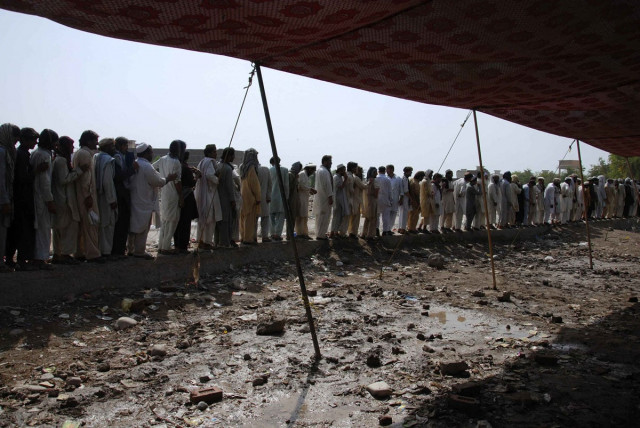IDPs: below the news horizon
The IDPs may no longer be above the media event horizon, but they are no less real than when they were headline news

He was speaking to representatives from the NWA, where he announced a high-level committee that would be headed by the additional chief secretary for Fata that would seek to resolve the problems of the people of NWA “on a war footing”. Solving their problems, be it on a war footing or any other type of footing, is not going to be easy or quick, particularly as the DG ISPR Major General Asim Bajwa said on October 22 that the operation did not have a specific timeline and would only end when all militants are eliminated. The operation has now been going on since June 15, more than 1,100 militants are said to have been killed and the army is “making a comprehensive plan” to rehabilitate the IDPs.
This is almost certainly what the IDPs may not have wanted to hear. Although some families have returned to their ancestral homes, most have not. They remain disconnected from health and education services, their children are growing up in miserable living conditions, and they are totally dependent on government handouts for food and other essential supplies. The men of the family cannot get work and their livestock is either roaming free in the places they once lived — or dead. In psychological terms, there is a collective depression brought on by loss of dignity and lifestyle. The IDPs are now being told that far from there being an early return, they are destined, at least, to spend the winter on the plains and if the fighting continues into spring and beyond — and there is no reason to think that it will not — then they will remain marooned in no-man’s land for an indeterminate period of time. If stability in Fata is to be the benchmark by which any repatriation programme will be commenced, then the IDPs could be in for a very long wait indeed.
Those displaced from Bara tehsil in Khyber Agency find themselves in a similar position. The Khyber operation was launched in the last week, with the ebb and flow of persons displaced by various military actions creating even further confusion, even if such actions have become necessary. There have been 66,168 families registered from previous displacements. Some returned to their homes only to be displaced again, and now want to re-register in order to obtain further benefits, even though their previous registration is still valid.
There is now a vast sea of human misery camped in K-P. The United Nations Development Programme reports that there are 4,685 families from Khyber Agency in the Jalozai camp, and Peshawar city is hosting 71,308 families from Kurram Agency and North Waziristan. The government is unsure how many more may yet arrive. This is a massive shift in the demographic and there is the potential for displaced and disaffected populations, either to self-radicalise or fall prey to extremist groups, such as those that the army is currently fighting and that will happily radicalise a population that has high levels of latency. The IDPs may no longer be above the media event horizon, but they are no less real than when they were headline news. When they next make the headlines, it is likely to be a bad, rather than a good, news story.
Published in The Express Tribune, October 26th, 2014.
Like Opinion & Editorial on Facebook, follow @ETOpEd on Twitter to receive all updates on all our daily pieces.















COMMENTS
Comments are moderated and generally will be posted if they are on-topic and not abusive.
For more information, please see our Comments FAQ